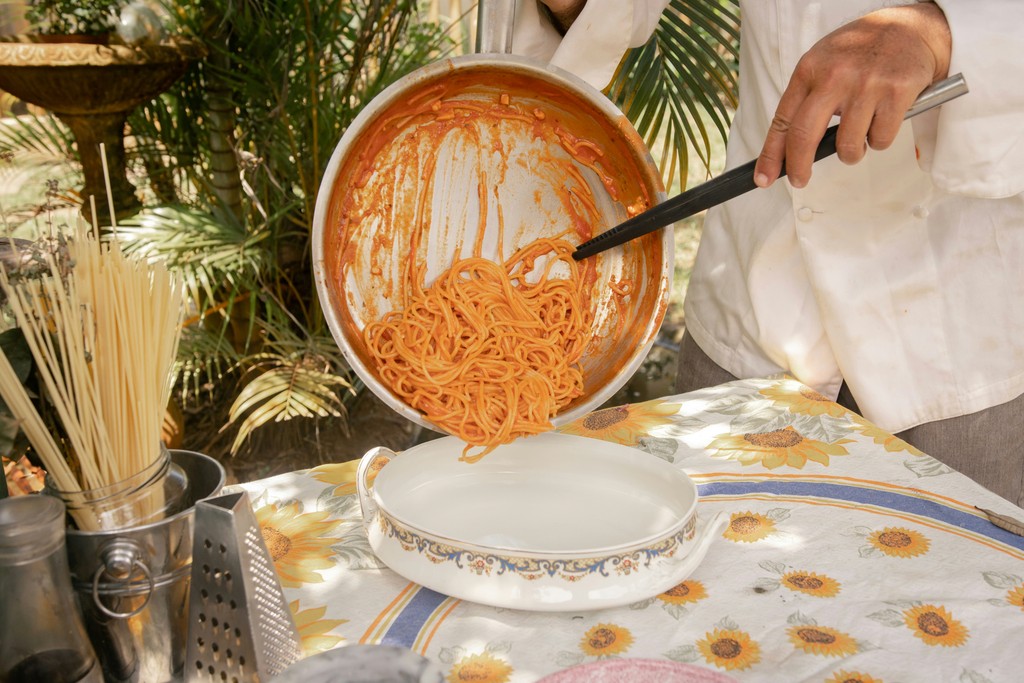
Ryan
Jan 16, 2024
Greece's Anthesteria Festival: Ancestral Revelry
In the sleepy corners of Greece, amongst the cradle of the olive trees and close to the ardent arms of the Aegean Sea, a loudly silent festival takes place each spring.
Famous by the name Anthesteria, this is more than joyful reveling for three days. It combines joy, nostalgia, privileges, prayers, and ceremonies celebrating life and death.
A Festival of Three Acts: Peeling the Veil off Anthesteria
The Anthesteria was not associated with one unified and clear festival. Instead, it unfolded in three distinct acts, each with its customs and rituals: Instead, it unfolded in three distinct acts, each with its customs and rituals:
Pithoigia (Jar Opening):
Pithoigia initiated the celebrations as pertinent to their name; it unleashed storage jars, known as pithoi, containing the prior year's wine production.
People would assemble relatives and the dead and bring feasts (religious offerings) of wine for Dionysus.
Choes (The Feast):
Due to strict observance of the rituals mentioned above, the second day of the Anthesteria was sadder and was called Choes. The specifics are unclear, but some modern historians saw it as involving alcoholic beverages, essential frivolity such as drinking games, and indeed the flipping of society's roles, where the upper classes mingled with the lower classes and vice versa.
Chytroi (Pots):
The last day of the observance was known as Chytroi, on which the spirits of the deceased were propitiated. People would also leave boiled grains and seeds (like the present-day koliva) near their doorstep to pull the ghouls toward them.
Again, participants chew on a buckthorn plant and coat their doors with pitch, thus using unique charms to chase away the evil spirits.
Last but not least, the festivity would end with a cheerful note of victory, saying, 'Through the doors, Kares, it is no longer Anthesteria!'
Echoes of the Past: Where the Anthesteria's Lasting Impact Is Today
Even though the customs of Anthesteria are not enjoyed in their primal form now, it provides a fascinating view of the ancient Greeks' outlook.
It helps to remind people about their naivety toward nature, their spirituality, and their actual respect for their ancestors before they become more civilized.
Beyond the Revelry: Memorializing when the World was Changing
In conclusion, the description of the Anthesteria provides valuable insight into the elements of social and religious practices of Ancient Greece. In this case, it regards the customs of paying respect to the deceased in society, devotion to indicating the changing of seasons, and finally, of course, the considerable harvest of wine that has now ripened.
Nevertheless, traditions such as the Anthesteria are more vulnerable globally as they are endangered objects that are gradually forgotten. It is such a pity, but it does happen that even stories passed down from generation to generation, traditions, customs, customs, and recipes for flavorful dishes our ancestors cooked can be forgotten.
The Enduring Power of Memory: The way Confinity fills the gap
The Anthesteria festival represents how people attempt to convey their ancestors' presumed words and acts.
Ancient Athenian people used only ritual and meat offerings services to respond to the gods, and present nowadays, Confinity is a tool with which one can create practical immortality.

Confinity: Your Partner in Preserving Your Memories for Future Generations
This is where Confinity comes in. It allows you to personify your family narrations, stories, and recipes as a curator who maintains the richness of ancestors' heritage for future generations.
Imagine creating a digital time capsule: Imagine creating a digital time capsule:
Record Your Stories:
Confinity enables its users to record their life experiences, relay their knowledge, engineer their skills, and pass down their lessons in life to their families.
Organize Your Memories:
We provide you with a convenient tool for collecting and structuring your favorite photos and videos, basically building a harmonious timeline of your life.
Share Securely:
Confinity helps users safely share their digital content with loved ones, enhancing the bonds people have with friends and family members.
Frequently Asked Questions
1. When was the Anthesteria festival celebrated?
It is annually held around the full moon of January or February.
2. Who was Dionysus?
A Greek god associated with wine, drinking, and ever joyful certainly, revels, and theatrical performances.
3. What was Pithoi?
Clay vessels were employed in early Greece to hold wine and other items.
4. What is it with wine and children now?
Children generally did not get wine, but during Anthesteria, they would even get a taste of it!
5. What did "Choes" mean?
It means 'Pots,' and it was named so because, on that particular day, provisions were left for the ancestors.
6. What were Chthonic Deities?
Mortuary deities and gods of the netherworld.
7. What was the rationale for the festivities to be more elaborate during Choes?
People who had always been severe became jovial, and there was what could be termed drunkenness.
8. What treatment and elimination methods did people in Chytroi use to deal with spirits?
They used pots and pans, banging them in a bid to scare off the witches due to the noise they produced.
9. What use is Anthesteria for us today?
This describes the tradition of sacred spring, or wine, and worshiping ancestors that ancient Greeks had.
10. This tradition needs to be remembered today, but how?
This is where online platforms such as Confinity come in handy, ensuring that such stories are recorded and passed on.

Conclusion
The Anthesteria festival stands as decisive proof that people should pay more attention to Think About Yesterday's Ancient World to understand the history of the world in general.
Confinity supports these traditions today and offers people the tools to create a modern, timeless digital record.
Using Confinity, one can guarantee that his stories, traditions, and values can inspire future generations.
